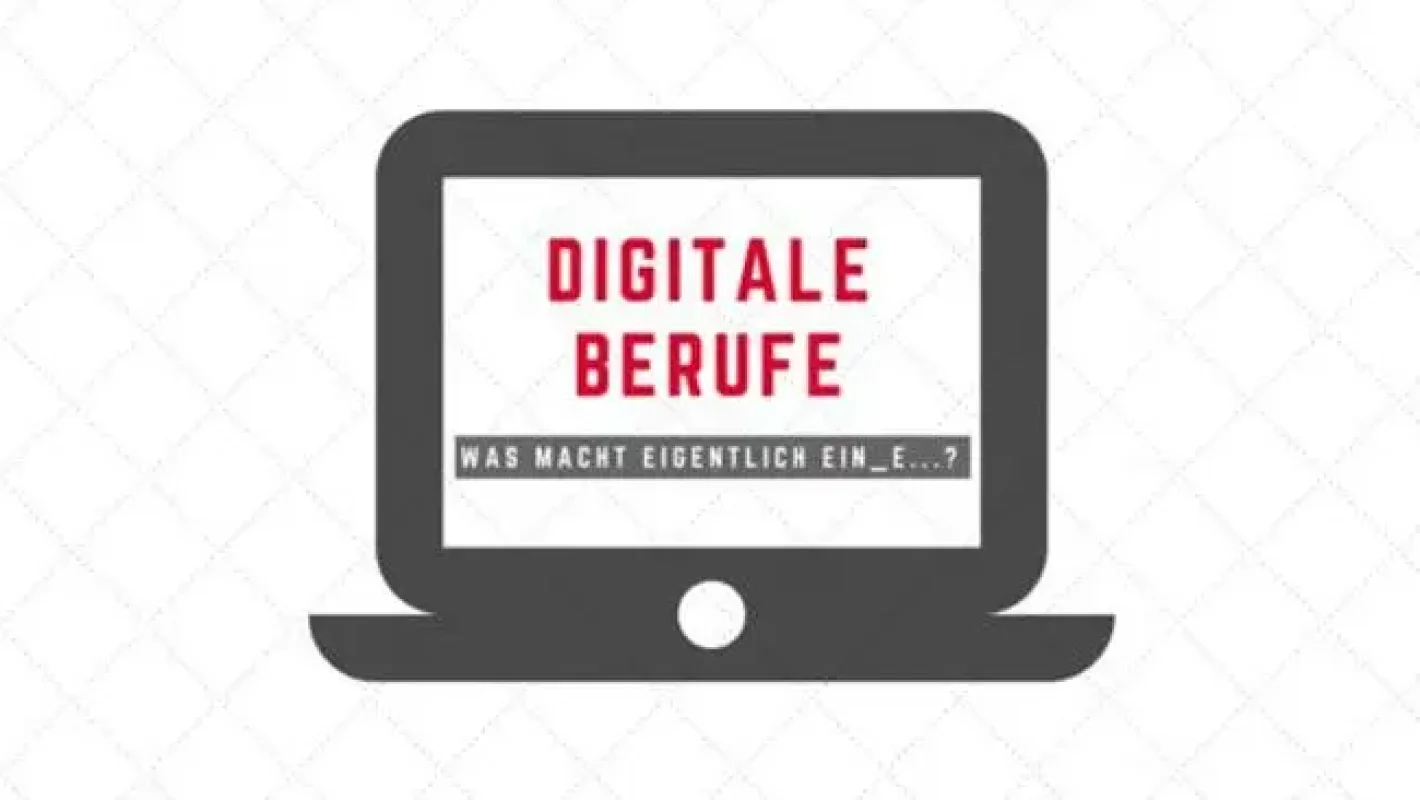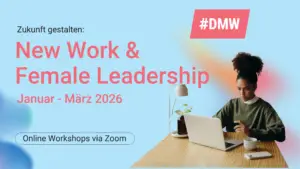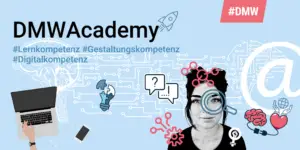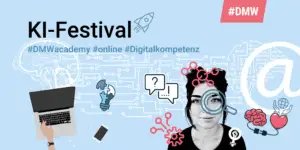Mit der Digitalisierung wandeln sich existierende Berufe und Neue kommen dazu. Die Abgrenzungen der Berufsbilder und die Aufgabendefinition ist in vielen Fällen noch nicht abgeschlossen. Kein Grund, nicht genau hinzuschauen und nachzufragen: „Was macht eigentlich ein_e …?“ Zum Thema #DigitaleBerufe starten wir eine neue Serie – die Idee dazu kommt aus unserer Community. In loser Abfolge geben Frauen aus unserer #DMW Community Einblick in ihren Berufsalltag in der Digitalwirtschaft.
Christiane Brandes-Visbeck hat mit S. Alyssa Simpson über ihren Weg in das Watson Team von IBM und ihre Aufgaben als Product Managerin gesprochen.
Zuerst aber ein kleiner Exkurs: „What is Watson? IBM Watson is a technology platform that uses natural language processing and machine learning to reveal insights from large amounts of unstructured data.“
„doing things that we didn’t used to think possible“
You lead the team that creates Watson talk and Watson vision. What are your goals, and what does your daily job routine look like?
Alyssa: I lead product management team for „Signal Services“ which includes:
- Visual Recognition
- Speech to text / Text to Speech
- Personality Insights
- Tone Analyzer
- Tradeoff Analytics
- Language Translator
and more to come.
Daily I spend much of my time speaking with our clients, gathering requirements, listening to understand how and why our clients use our services, what is working well, and where we have areas for improvement. I work collaboratively with our design, development and research teams internally at IBM to build out new features and functionality. I also work with marketing, sales, and other client facing teams to make sure that our offerings are brought successfully to market.
What in your personal live of your career has influenced your current interest in the Watson project? What has qualified you for the job?
Alyssa: I love working on hard problems to change the world.
Here is a post I wrote a year ago about what motivated me to join Watson: Hard Problems
My startup experience, training in IBM Commerce and initial liberal arts background has prepared me well for the role at Watson. I have learned a lot about machine learning in the last year, and recently took on the expanded role of Signal Services.
When I was a Linguistics major at university studying in the field of artificial intelligence, we believed in the idea of a universal grammar. These days AI seems to be more about cognitive computing as recognition of emotions and speech, self learning algorithms and deep learning. What had scientists to invent or rethink to create this break through?
Alyssa: IBM has been in this business a long time – we talk about AI as „augmented intelligence“ building technology that works collaboratively in partnership with people to extend, scale and develop smarter more efficient ways of doing things that we didn’t used to think possible.
„people can focus more of their time in their jobs doing what they do best, and making more informed decisions“
What fascinates you about the Watson project and cognitive computing?
Alyssa: I’m inspired to have a small role to play in making our world a more connective, empathetic, and smarter place where we can solve very difficult problems in medicine, climate, and for humanity that we have long thought too big are now very much in reach.
What is it like to explain to people what Watson can do these day? Do they seem to be afraid of „colleague computer“?
Alyssa: Often people don’t really understand the gap between the hype of AI and the reality of the technology. I spend a lot of time helping people understand what’s possible and what is not.
What is for the average person the most unthinkable thing computers can already do. Something that appeared to be reserved for humans not too many years ago?
Alyssa: Personalized medicine is a good example for the average person – where computers can diagnose and recommend treatment plans for individual patients that may be more specific then a doctor may recognize on their own without the augmentation of technology.
We Digital Media Women (#DMW) in Germany believe in Digital Leadership, meaning that a leader should to be innovative and disruptive, yet value driven and resourceful. We need to believe in hyper connection and collaboration, must embrace change and believe in communicate with all kinds of people on the same level. What is your interpretation of digital leadership? How do you lead your team? How will leadership with process like IBM Watson in the back of our minds, develop in the future?
Alyssa: I love those values. As a new manager, candidly, I’m still developing my leadership style, however I try to be honest, straightforward, and transparent as I manage. I focus my team on the priorities that matters most for our clients, for IBM, and for the world.
„cognitive computing platforms will change our lives“
Statistics say, half of the major companies will be gone like dinosaurs within a few decades because they hold on to traditional services, communication skills and work cultures. Your job is to develop communication skills of a computer. What are your thoughts on the role of people in the future business world?
Alyssa: See above – augmented intelligence. The influence of cognitive computing in the business world is extending the reach and scale of what is possible across any industry. Because of the power of what Watson brings to the table, people can focus more of their time in their jobs doing what they do best, and making more informed decisions — and less time entering data and making decisions without all the required data.
What kind of inventions to you expect within the next 5 to 10 years that will change our life as much as smartphones do?
Alyssa: The maturity of cognitive computing platforms will change our lives as much if not more then smartphones.
 Alyssa Simpson
Alyssa Simpson
Watson Developer Cloud Product Management | Data Nerd
Was born and raised in San Francisco, and now lives in San Francisco with her Fiancé. „I love to cook and am a foodie and world traveler.“
Twitter: @sAlyssaSF
Foto: Year of the Monkey
 Christiane Brandes-Visbeck
Christiane Brandes-Visbeck
Gründerin der Management Beratung Ahoi Consulting und #DMW Quartiersleiterin in Hamburg
Twitter: @ChristianeAhoi
Foto: Year of the Monkey
 Das Interview wurde im Vorfeld des „Year of the Monkey, THE DIGITAL TRANSFORMATION AND INNOVATION FESTIVAL“ geführt.
Das Interview wurde im Vorfeld des „Year of the Monkey, THE DIGITAL TRANSFORMATION AND INNOVATION FESTIVAL“ geführt.
Alyssa Simpson („Disrupt: How Innovative Companies Use Cognitive API’s To Win“) und Christiane Brandes-Visbeck („Create Your Future: Value-Based Leadership“) sind als Speaker am 3. November in Hamburg dabei.
Weitere Digitalberufe
- Was macht ein „Head of Digital Channels“ jeden Tag? – Magdalena Rogl, Head of Digital Channels bei Microsoft Deutschland
- Claudia Lampeitl, #DMW Orga-Mitglied und Senior Mobile Marketing Managerin bei PAYBACK nimmt uns mit in die Welt des Mobile Marketings
- Cathrin Mittermeier, #DMW Orga-Mitglied sowie Community & Social Media Managerin bei E.ON, beschreibt ihre vielseitigen Aufgaben im Social Web
- S. Alyssa Simpson spricht über ihren Weg in das Watson Team von IBM und ihre Aufgaben als AI Product Managerin
- Claire Zeidler, #DMW Orga-Mitglied in Berlin, ist erfahrene Performance Marketing Managerin, die in Zahlen-Dschungel den Überblick behält und mit detektivischem Fähigkeiten Optimierungspotenzial von Online Kampagnen aufspürt
- Marion Marschalek, Malware Reverse Engineer über das stark wachsende Feld des Reverse Engineering und ihre Aufgaben
- Christine Deger, Cyber Security Beraterin sichert Unternehmenswerte und erzählt, was es zu beachten gibt
- Sonja Schumacher, Online Konzepterin und UX-Designerin, über einen abwechslungsreichen Beruf, der die Bedürfnisse der Nutzer im Blick hat.
- Hannah Monderkamp spricht über die Herausforderung als Social Media Analystin, aus den vielen Informationen, Themen und Gesprächen im Social Web das Relevante herauszufiltern und immer den Überblick zu behalten.
- Kathrin Kaufmann, Senior Digital Strategist, zeigt uns den Weg hin zum Strategiepapier, an dem sich alle digitalen Kommunikationsmaßnahmen orientieren.
- Nora Hesebeck gibt uns Einblick in ihren Berufsalltag als Mobile Software Engineer




